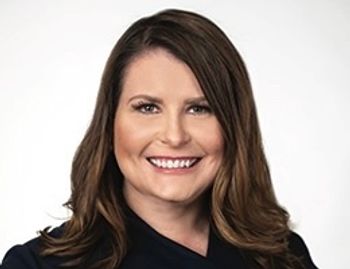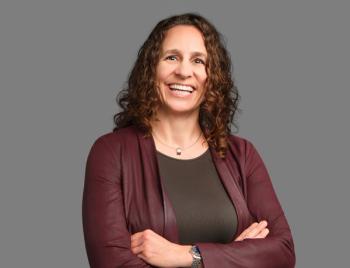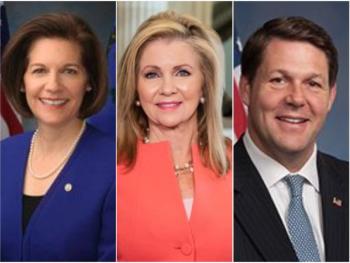
Dr. Oz on $50B rural health fund: ‘Find the best ideas’
Speaking to hospital leaders, CMS Administrator Mehmet Oz says states and hospitals should develop transformative ideas. Critics say the fund won’t offset looming Medicaid cuts.
Dr. Mehmet Oz says the federal government’s new $50 billion
Oz, the administrator of the Centers for Medicare & Medicaid Services, spoke to healthcare leaders about the new program during Sanford Health’s summit on rural health care Tuesday.
The new program was created
Speaking in a virtual address, Oz touted the program as a historic initiative to improve rural health care. He said that he hoped some of the ideas could serve as models, which could improve care outside rural areas as well.
“We're not talking about paying bills, and, you know, rounding the edges,” Oz said. “We want transformative big ideas that will dramatically change our expectations of the rural health care system.”
Even though the program was just created by law in January, states have very little time to apply for funds. States must apply by Nov. 5, and the CMS has said grants will be announced by the end of the year.
Half of the money ($25 billion) will be given out equally to all states with an approved application, the Trump administration has said. The CMS will distribute the other $25 billion to states based on the merits of the applications.
“Find the best ideas that are being considered and share them with each other,” Oz said. “Exchange best practices … the best practices that we discovered to help scale healthcare more effectively in rural America, will also work in urban America, suburban America, other countries. So let's use this grand experiment, this five-year effort to transform healthcare, to start with rural health care, but spread the wisdom.”
Oz suggested that rural hospitals need to form partnerships with larger hospital systems to help gain access to more services. He didn’t say those partnerships had to involve large systems taking over the smaller hospitals, but he said there could be opportunities for more collaboration. He said that some smaller, rural hospitals are only seeing a handful of patients.
“The unfortunate reality is a lot of people in that community are driving by that hospital to get to another one,” Oz said. “So how do we get big hospitals to adopt smaller hospitals, not to take them over, but to keep them viable? By giving them good telehealth services, specialty support, radiology support.”
Those steps could lead to smaller hospitals having enough patients to keep them viable.
The rural health program could also finance initiatives to train more doctors and nurses to work in rural areas.
“States could also apply for funding to help train more nurses and doctors locally, regionally, so they'll stay in those areas and make those jobs a better quality experience, when they’ll stay there and live their lives there, nurses as well,” Oz said.
Oz also suggested proposals to take pharmacists to “the height of their licensure.” If a pharmacist sees a parent with a child with a sore throat, the pharmacist could do a throat swab and a telemedicine consult to confirm that strep throat is treated with penicillin.
“Dispense the medication, get mom to bed so she can go to work the next day, get the child back to sleep, and not drive them halfway across the state to get an ER visit that's going to get the same result for a lot more money,” Oz said.
Since the program is so new, some healthcare leaders have wondered how the CMS will decide on the winners. Oz said Tuesday that the agency has “hundreds of reviewers, from each state, looking at the quality.”
While hospital leaders have said they welcome more funds to address rural health care, some have also said that the $50 billion program still doesn’t offset the losses from pending cuts in Medicaid programs. They also note that the new rural health program lasts for only five years.
Rick Pollack, president and CEO of the American Hospital Association, also spoke at the beginning of Sanford’s day-long rural health summit. Speaking a few hours before Oz’s address, Pollack said the reduced support for Medicaid far surpasses the aid from the rural health program.
“The one big bill cut Medicaid a trillion dollars over a 10-year period,” Pollack said. “This transformation fund is $50 billion over five years. Okay, now, I never thought I would say $50 billion is a modest investment in anything, but put it in perspective.”
Oz defended the Trump administration’s efforts to reduce the scale of Medicaid programs. He said the growth of some programs during the COVID-19 pandemic was never addressed, making it easier to game the system.
“Certainly the legalized money laundering from state-directed payments and provider taxes, no matter what you might think about them, don't align the federal government with state governments,” Oz said. “They do quite the opposite, and it was a grab bag, and states could take as much as they could from the federal government.”
He also said, “Medicaid has grown so large …. it's crushing state budgets. But the other thing that's hurting us is fraud, waste and abuse. And we want to deal with fraud, waste and abuse by crushing it.”
Health systems have said reduced support for Medicaid
Rural hospitals have struggled financially for years. About






















































































